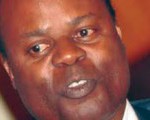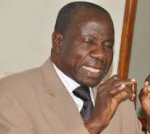The International Monetary Fund has disclosed that the rate of inflation in the country has increased.
According to the IMF, an inflation that has been contained at low rates oscillating at between 3 and 5 per cent has been experienced despite the depreciating shilling.
In a release issued May 14, a visiting IMF team noted that inflation had risen from 3.1 per cent in December last year, and is expected to stabilize at about 5 per cent in the medium term.
In the release titled ‘Fourth PSI Review’, the team led by
Ana Lucia Coronel, the IMF Mission Chief and Senior Resident Representative for Uganda, the Fund said its staff had completed a ‘combined 2015 Article IV and Fourth PSI Review Mission to Uganda,’ aimed at reviewing the country’s economic programme, supported by the Policy Support Instrument (PSI).
“Uganda’s recent economic performance has been favorable. The GDP rebasing revealed an economy that is 17 percent bigger than earlier thought, although growth rates in the last few years have been more moderate. Nonetheless, real economic growth is projected to reach a robust 5.3 percent in the current fiscal year and 5.8 percent in FY2015/16, compared to 4.5 percent in FY2013/14,” the release by Ms Coronel states in part.
During the visit the IMF team met with finance minister Matia Kasaija, central bank Deputy Governor Louis Kasekende and the Secretary to the Treasury Keith Muhakanizi, and urged the government officials to ensure that Ugandans benefit from the current growth that is being realised.
“Fiscal and monetary policies have supported the growth and inflation objectives. The supplementary budget before parliament reallocates rather than increases spending, using savings from improvements in the payment
and payroll systems to address emerging needs,’ the team leader states.
Ms Coronel further notes that the improvement was due to ‘scaled-up public investment and a recovery of private consumption supported by stronger credit growth’.
She noted that subdued inflation, reserves of above four months of imports, a sound financial system and relatively low government debt, currently estimated at about 30 percent of GDP, had shielded the Ugandan economy against shocks.
In the release Ms Coronel also noted that compared to the targeted figure, tax revenue had increased due to favourable packages introduced in the Financial Year 2014/15.
‘The mission welcomes the efforts underway to improve tax collections, and a combination of new measures and efficiency gains is projected to result in an additional tax-to-GDP ratio increase of about 0.5 percent,’ the release adds.
Ms Coronel said the PSI was satisfactory, with the December 2014 fiscal and external targets met.
Other issues deliberated upon included among others, delayed execution of hydroelectric projects; public investments; petroleum revenue management; reduction in energy and transport infrastructure bottlenecks; job creation and the containment of expenditure in the run up to the elections.
It should be noted that in November 2014 Bank of Uganda Governor Prof. Emmanuel Tumusiime Mutebile said he had been misled into financing some elections activities during the last elections in 2011, sending the country’s economy in spiraling descent. He has since said he will not fund any electioneering in the forthcoming elections in 2016.
However, Mutebile’s revelation made late last year seems to have awakened the IMF into focusing on the forthcoming election expenditure.
Inflation rises as economy improves

- Advertisement -










https://wllj.bambuslife.us/actor/gyan-prakash-sharma/ – Gyan Prakash Sharma